World Cup 2022: What’s been banned and how have players reacted?
- Published
Matches are under way, and fans are enjoying the World Cup in Qatar. But there's been controversy over which items and behaviours are prohibited - and how fans and players have reacted.
OneLove armbands
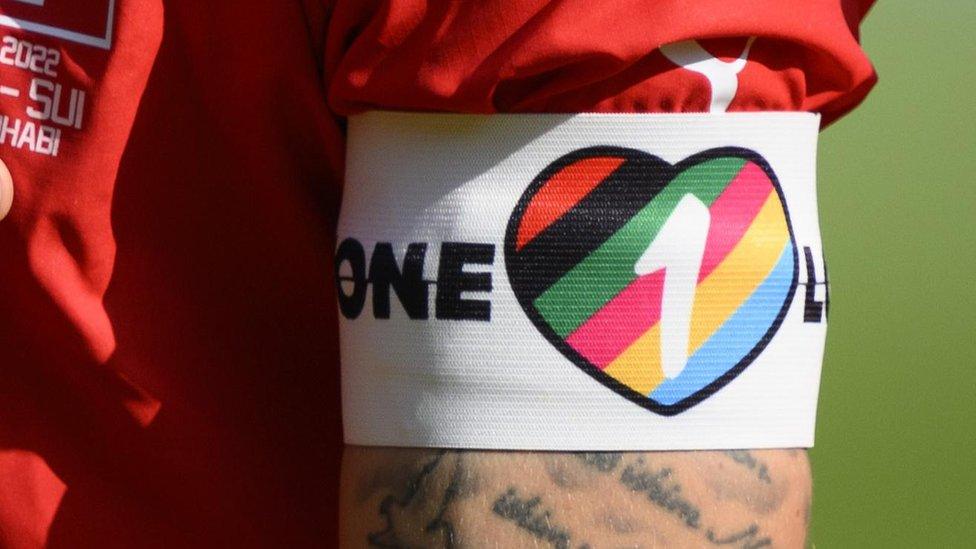
The armband is part of a campaign to promote diversity and inclusion, launched in 2020 by the Dutch football association
The OneLove armband with a rainbow flag in the shape of a heart and was going to be worn by team captains from seven nations to protest Qatar's laws against same-sex relationships.
But football's world governing body Fifa said they would give a yellow card to any player wearing it, so the teams decided not to wear it.
According to Fifa rules, "political, religious or personal messages or slogans" are banned, and it instead offered the captains an armband that says "No Discrimination".
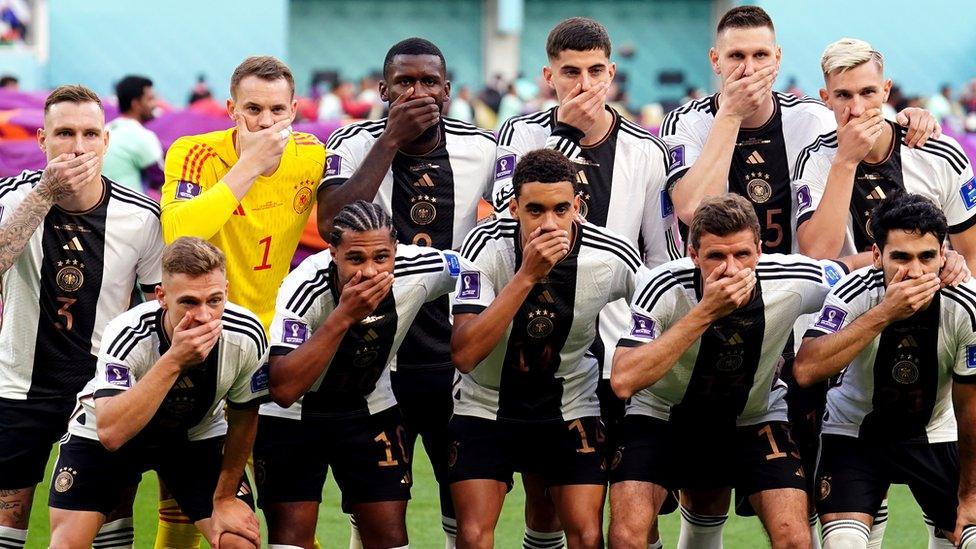
German players covered their mouths as they posed for a pre-match photo
On Wednesday, players in the German team covered their mouths in protest as they posed for a pre-match photo.
Off the pitch, a former Danish prime minister, a German federal minister and BBC Sport presenter and former England women's player Alex Scott were all pictured wearing rainbow armbands.
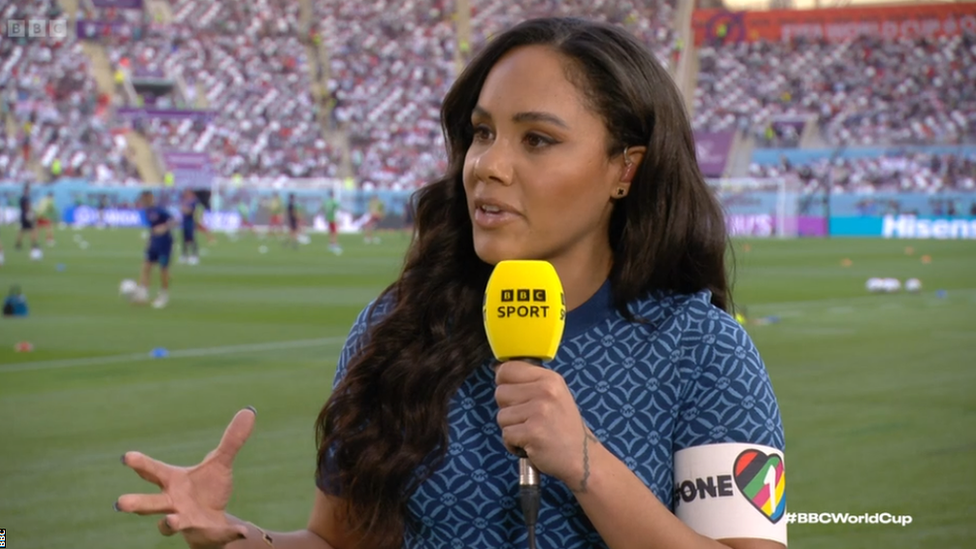
BBC pundit Alex Scott wore the OneLove armband before England's World Cup opener against Iran
A Danish TV reporter has also been testing where the boundaries lie by wearing a OneLove armband while reporting bu twas told to take it off by a Qatari official.
Beer
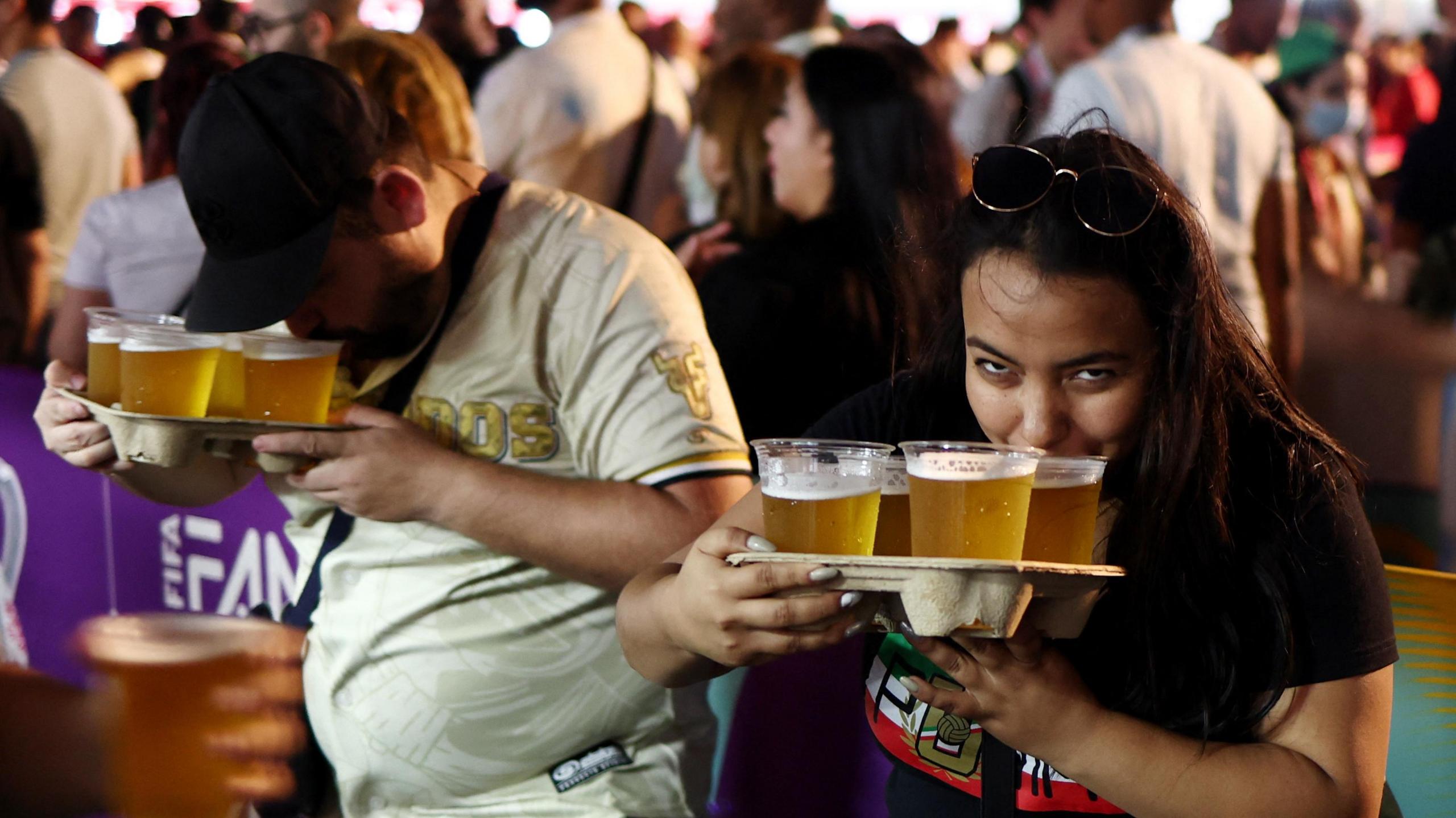
Fans can still enjoy alcohol in designated zones outside stadiums
The sale of alcohol is strictly controlled in Qatar, but alcohol was going to be served inside stadiums until Fifa suddenly changed its policy just two days before the tournament.
The last minute U-turn was awkward for major World Cup sponsor and brewer Budweiser, which was quick to respond.
"Well, this is awkward," it posted on Twitter - but later deleted the tweet.
Despite the ban inside stadiums, beer is still being served in fan zones where people can gather to watch matches on a big screen.
Bucket hats
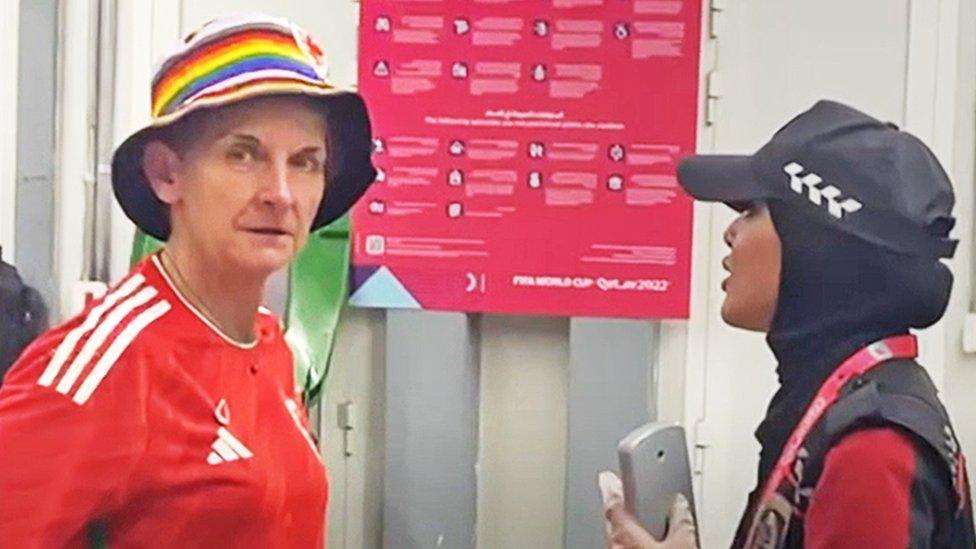
Ex-Wales football captain Laura McAllister was told to remove her rainbow bucket hat by a security guard
The bucket hat has become a symbol for Welsh football crowds after it was launched as unofficial merchandise in 2010.
Welsh fans wearing a rainbow version in Qatar have reported having it confiscated by officials, including ex-Wales football captain Laura McAllister, who said she felt intimidated when told by a steward to remove her hat as she entered a stadium.
However, the Football Association of Wales (FAW) says that Fifa has told World Cup venues to let rainbow-coloured hats and flags into stadiums for the remainder of the tournament.
It looks like certain fancy dress is also leading to fans being halted at the gate. Video on social media appears to show fans in crusader costumes being turned away, external.
Anti-discrimination group Kick it Out reminded England supporters that crusader and knight costumes recall the religious wars Christians waged against Muslims during the Middle Ages. It advised them not to wear that kind of fancy dress.
Removing other clothes
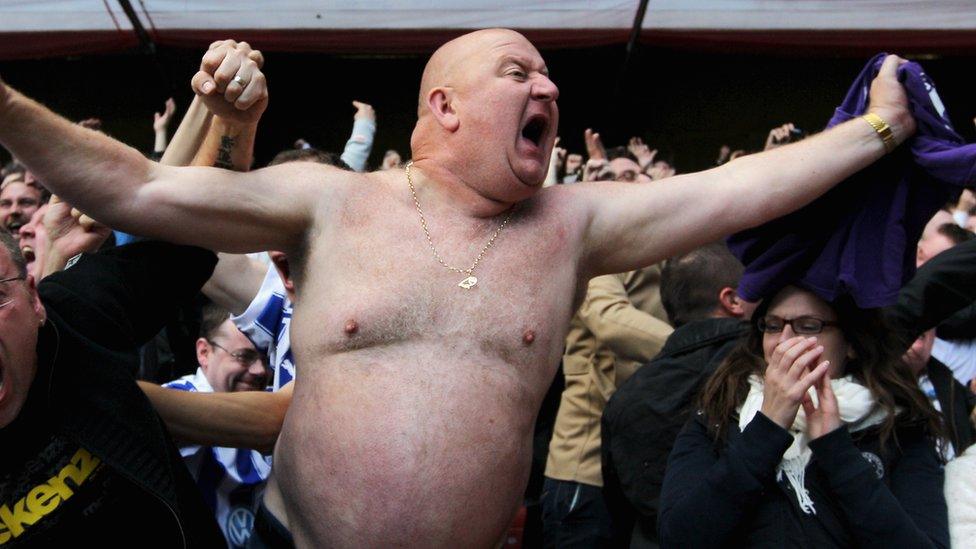
Fans often take off their shirts in UK football stadiums
Fans may not remove items of clothing or "remain in a state of undress including being shirtless or reveal intimate body parts", according to a code of conduct for Qatar, external published by Fifa.
While taking off your shirt might be the norm in many UK grounds at moments of peak footballing drama, fans in Qatar could be fined.
Peeing in any place other than a toilet, littering and smoking are also forbidden, and horns and musical instruments are banned - officials don't want a repeat of 2010 when the vuvuzela became the soundtrack of the World Cup in South Africa.
Other items fans aren't allowed to bring include significant quantities of paper or inflatables - because of the risk they could end up on the pitch.
The word 'love'
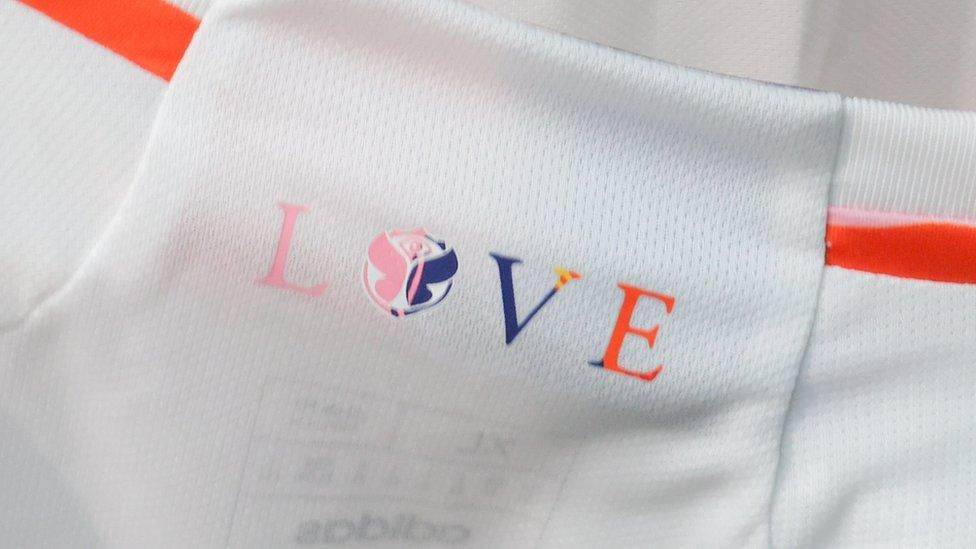
Fifa regulations ban the 'display of commercial messages'
The Belgium team will not wear their away shirts which have the word "love" printed on the collar.
Belgium says Fifa told them to remove it - so they'll wear their red home shirts instead.
The shirt has a rainbow-coloured trim, inspired by the fireworks of Belgian music festival Tomorrowland, and the festival's logo is incorporated in the "o" of "Love".
Reuters reports Fifa rejected the shirt not because of the colours, which are typically a symbol of support for LGBTQ+ rights, but because of the commercial link to Tomorrowland.
Fifa also rejected the Danish Football Association's request to train in shirts with the words "human rights for all".
Qatar has come under intense scrutiny for the way it treats migrant workers - and its government says reforms are being made.